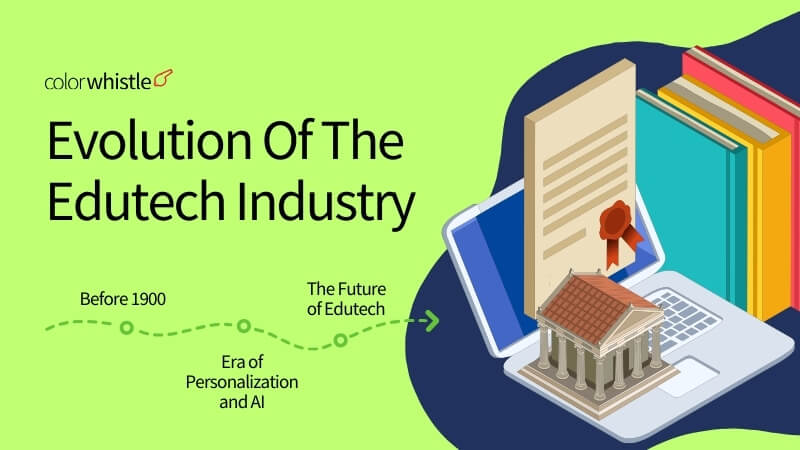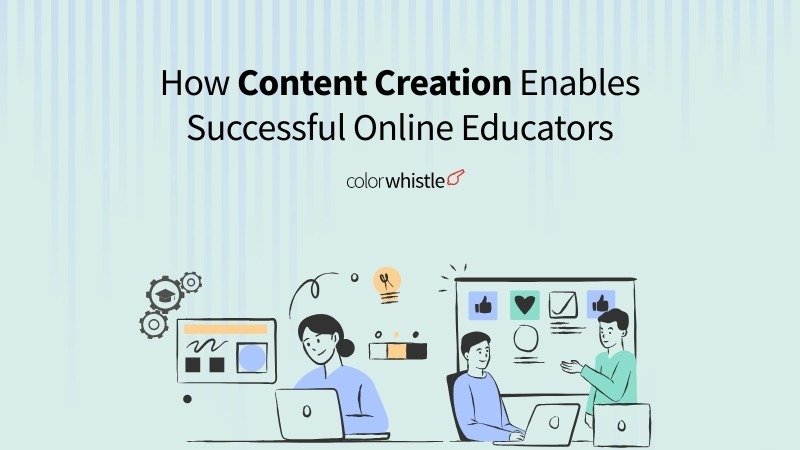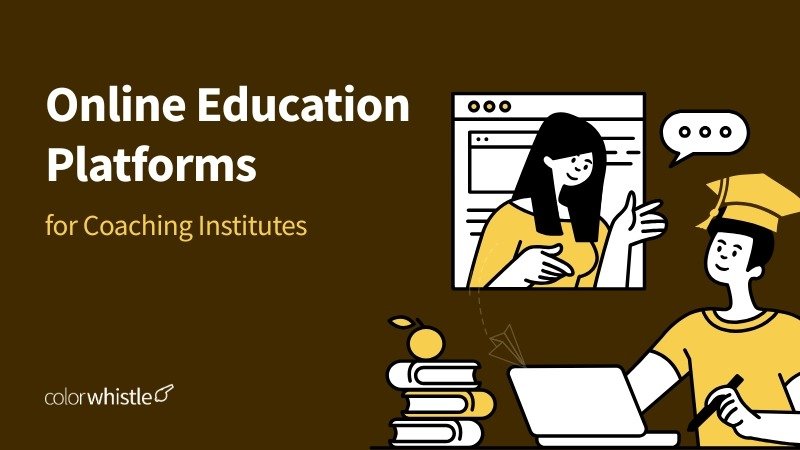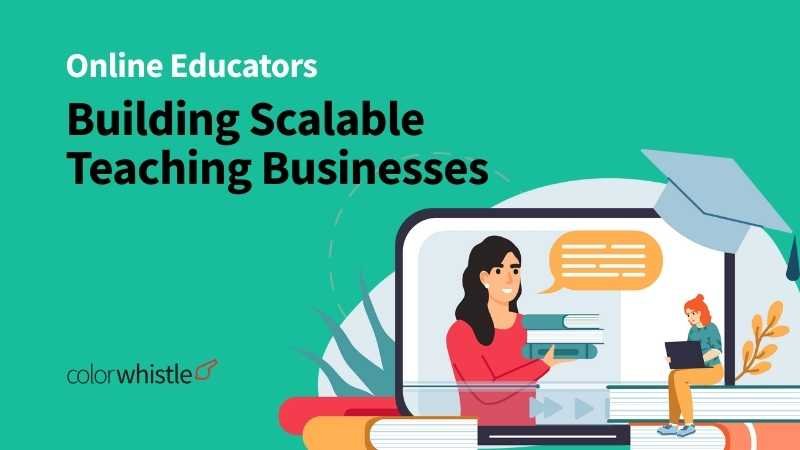EdTech, an abbreviation for Educational Technology, encompasses a wide range of teaching and learning practices that utilize modern technologies.
The EdTech field has undergone remarkable progress throughout the past century, starting from the utilization of early educational films and teaching machines in the 1900s to the introduction of AI-powered personalized learning. The industry has been molded by the demand for innovative services in the development of educational websites that meet diverse learning needs. The 21st century has marked a rapid acceleration in the progress of the educational technology sector, propelled by the widespread adoption of smartphones, tablets, and high-speed internet. The integration of artificial intelligence, virtual reality, and data analytics has brought about a revolution in the delivery of education.
This article provides a comprehensive timeline of the evolution of the EduTech industry.

Also Read
Early Stages (Before 1900): The Foundation
The oral education system of Ancient Greece had a significant impact on modern teaching methods.
20th Century: The Rise of Machines
- Educational Films (1900s): Educational Films in the 1900s revolutionized learning by providing visual stimulation and engagement, enhancing the educational experience.
- Standardized Testing (1917): The introduction of standardized testing in 1917 with the Army Alpha test marked a significant change in assessment methods, shifting towards standardized evaluation.
- Teaching Machines (1920s): In the 1920s, Sidney Pressey’s “Mechanical Teaching Machines” revolutionized learning by introducing a more interactive approach, enhancing student engagement and participation.
- Audio-Visual Technologies (1930s–1950s): From the 1930s to the 1950s, audio-visual technologies such as radio and television became invaluable tools for distance learning and broadcasting educational content, expanding access to education.
The Digital Age (1990s-2000s): Expanding Horizons
- Computers Enter Classrooms (1960s): Computers were first introduced into classrooms in the 1960s, primarily for educational purposes, although their accessibility was limited.
- E-Learning Takes Off (1980s): The 1980s marked the beginning of e-learning with the emergence of personal computers and the internet, leading to the development of online learning platforms and educational software.
- The World Wide Web (1990s): In the 1990s, the World Wide Web transformed access to information, resulting in the expansion of online courses, resources, and communication tools.
- The Era of Online Learning and Multimedia (2000s): The 2000s saw the rise of online learning and multimedia, with smartphones and tablets revolutionizing mobile learning and Massive Open Online Courses (MOOCs) like Coursera and edX democratizing education worldwide.
The Era of Personalization and AI (2010s)
The Early 2010s: Laying the Foundation
- Between 2010 and 2012, Massive Open Online Courses (MOOCs) became popular, enabling prestigious universities to provide free online courses through platforms such as Coursera, edX, and Udacity, making higher education more accessible to all.
- The edtech industry experienced a boost in investment and consolidation during 2013-2014. This was driven by the growing trend of MOOCs and notable acquisitions such as Blackboard’s Moodlerooms and Netspot.
The Mid-2010s: Rapid Growth and Diversification
- From 2015 to 2016, the edtech industry shifted to K-12 education and corporate learning, with companies like ClassDojo, Nearpod, and Kahoot growing in this market.
- In 2017 and 2018, there were big improvements in AI and ML technologies in educational tech. This progress resulted in personalized learning platforms being created to meet each student’s needs.
The Late 2010s: Maturity and Consolidation
The period spanning from 2019 to 2020 witnessed substantial growth in the edtech industry, as big corporations took over smaller startup companies to enhance their product offerings and increase their customer base.
The Impact of COVID-19 (2020s)
The COVID-19 pandemic hastened the adoption of edtech, leading to a boost in investment and expansion of remote learning. This surge in demand was particularly evident for companies such as Zoom, Google Classroom, and Coursera.
The Future of Edutech (2026-2030)
The EdTech industry is projected to reach $10 trillion by 2030, driven by advancements in AI, VR/AR, and emotional well-being, and leveraging social media for communication.
Also Read
From Chalkboards to Chatbots: Edutech’s Journey and the Road Ahead
The educational technology sector has undergone substantial changes since the inception of the printing press, incorporating tools such as television, computers, and the internet. The emergence of Learning Management Systems (LMS) in the early 2000s streamlined course administration. Anticipated growth in the industry is fueled by digital transformation, online education trends, and technological progress. Innovations like blockchain, 5G, and IoT are poised to transform the field of education, offering continuous connectivity, enhanced data protection, and tailored learning opportunities.
As we look to the future, it is clear that education website development services will play a crucial role in shaping the next phase of edutech. By leveraging the power of technology to create engaging, interactive, and accessible learning platforms, education website development services can help educators and institutions stay ahead of the curve, providing students with the tools and resources they need to succeed in an ever-changing world.
You can contact ColorWhistle by sending us a message or call us at +1 (919) 234-5140, we’ll get back to you at the earliest. We provide services tailored to your requirements that suit your business.
Browse through our ColorWhistle page for more related content and to learn about our services.
What’s Next?
Now that you’ve had the chance to explore our blog, it’s time to take the next step and see what opportunities await!





